Theology Thursday: Loving Community Well; And the Powerful Biblical Commands That Come With It (On Friday- because we all got sick) Written by the Elf
~Why Community?~
We all have a desire to connect. But I also feel that it is safe to say that we all fear rejection, isolation and feeling un-seen. And it feels like an incredibly impossible balance to love our families, communities, and church groups well while also serving those without that community. My perspective has been changed about what and who my community is biblically and that has brought some clarity on that balance. It’s a common thing to say that “Life’s better in community”. And while there are definitely days I feel like it might be easier to be on a desert island with my books and no people- I do think that our relationships make life better. I read an article recently written by Top Chef’s Fatime Ali, who passed away recently from a rare form of bone cancer. And it really impacted me that the most important thing to her now was ‘smothering her family and friends with the time that she guarded so carefully before.’ Our relationships matter the most. They are a life giving support system. We’re all one phone call, one event, away from disaster and we need each other for support and encouragement in the highs and lows of life.
~Two Communities~
So there are two types of community. Your close relationships and then communities in the larger sense. EG: your work community, your neighborhood, the global community. And I used to firmly believe that we were only responsible for what or who we knew directly. But it turns out- that’s a lie from the beginning of time. Even the first people did not want to take responsibility for each other. Adam blamed Eve, Cain asked why he was supposed to know where his brother was after he had killed him. Boom- right out of the gate, dysfunctional community and relationships. But it turns out that Jesus didn’t say- ‘Go back and tell your BFF all about me- and that’s all you’re responsible for’. That whole “Go out into all the world” line actually comes up a few times in the New Testament. So I’ve learned now that I am responsible for doing what I can to keep my connection to Christ, and my connection to my immediate community circle, healthy. But more than that, I am also commanded to do what I can to aide my brothers and sisters in Christ on a global scale, to understand what they are going through- because they too are my community.
As Christians, we are supposed to be living in community with each other directly in a deeper sense. When we are growing in our relationships, we grow our relationship with God. These are the reasons that I’ve found that to be so significant for us as Christ followers…
- Being in deeper relationships with people helps gives us perspective and see Jesus in and through others. Our relationships don’t have to be defined by any typical standard. They don’t have to be huge or just a specified group of people from church. But interacting and activities do not necessarily equal connectivity. But when we ARE in proximity to people and we truly CONNECT with them. It’s easier to see Jesus in and through them even when we disagree.
- While our relationships eb and flow, intentional relationships help keep us accountable and encouraged. We all need a couple of “No matter what” friends. (People who you can share things you would be scared to share with everyone and vice- versa) But beyond those relationships any intentional relationship can bring a level of accountability that can help you both grow.
- Your community can be a great witness and add to our level of compassion. You are better able to see and understand things outside of yourself when you are serving others and serving together. When we step outside of ourselves and take great care of each other and those outside of the church we are showing others the hands and feet of Christ.
The second type of community is the much less personal, and in my opinion, much more overwhelming global community. How are we interacting within our cities, countries, and world? Because we are alllll made in God’s image. And I do not want to stand before God one day, like Cain, and say, “Oh, you expected me to responsible for my brother too?- Oops!”. And while the Bible has a lot to say about being good stewards of our citizenship, spending, and caring for our community resources- what I want to focus on are the instructions about loving vulnerable people.
~Biblical Community and Commands~
The Bible spans SO much time that there really is no way to sum up what family and community looked like biblically as a whole. However, scholars like Kenneth Bailey believe that when Jesus was living it was likely that women had very little power, families lived relatively close to each other, and lineage mattered. In their book ‘The Message of Women’ Dianne and Derek Tidball suggest that around a third of the women living in the Roman empire during that time would have been widowed by war and disease. And that there would have been an expectation on the family and community to care for the widowed and orphaned within their lineage. So those who were without family and community support were extremely vulnerable because they had no one to speak for them. There are ancient law codes that show that kings were only considered righteous if they protected the cause of the most vulnerable in society- frequently being the widow and orphan but including other vulnerable, unprotected people as well. A fact we see in action today- when you look up the reign of a recent king, prime minister, or president it is often noted in their short biographies whether or not they championed the cause of the needy.
Jesus’ gospel message would have been very attractive to people who were isolated and vulnerable in society. And Jesus had a LOT to say about caring for the vulnerable- and so did the disciples. I love how Tony Merida lays it out in his book Ordinary. He breaks it out into three categories.
1) What the Bible has to say about the vulnerable (particularly the orphan, widow, foreigner and poor)… They might be vulnerable to being kidnapped, sold or murdered. They might be those that are hungry or abandoned. The ones who have lost their right to their livestock and property are in need. Those that were victims of, or could be easily victimized with, violence, injustice and abuse should be looked out for. Those who are the most vulnerable might be beggars and they would not be properly represented in court.
[References- Job 6:27, 22:9, 24:3-9, 29:12, 31:16-22; Proverbs 23:10; Isaiah 1:23, 10:1-2; Psalms 94:6, 109:1-10]
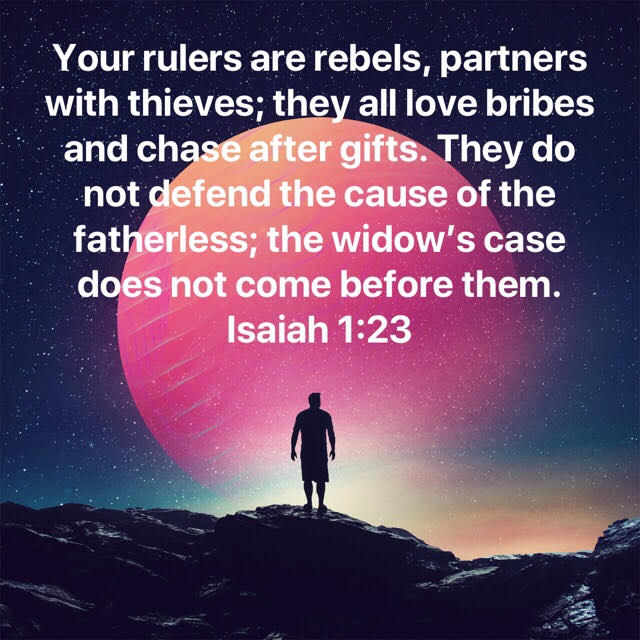
2) How we see God care for the vulnerable biblically…God says that He hears the cry of the oppressed. That He will defend and provide for the outcast. God sustains the widow, orphan, foreigner and WELCOMES them. He has mercy on the repentant sinner. He shows them mercy while promising to execute judgement on their oppressors. He is the father to the fatherless.
[References- Exodus 22:23, Deuteronomy 10:18, Hosea 14:3, Psalms 10:14-18, 27:10, 68:5-6, 146:9; John 14:15-21]

3) What we are supposed to do to care for them…We are commanded to provide for the orphan and widow in productive ways, look after them in their distress, ensure justice for the vulnerable, don’t take advantage of the fatherless and unprotected, include orphans in the church, know that God will severely judge those that oppressed the orphan and vulnerable.
[References: Deuteronomy 14:28-29, 16:10-14, 24:19-21, 27:19; Malachi 3:5; Psalms 82:3-4; Exodus 22:22; Isaiah 1:17; Zechariah 7:10; James 1:27; Matthew 6:1-4; ]
[summarized from Ordinary by Tony Merida- pgs. -75] (Orphanology in on my to-read list this year!)
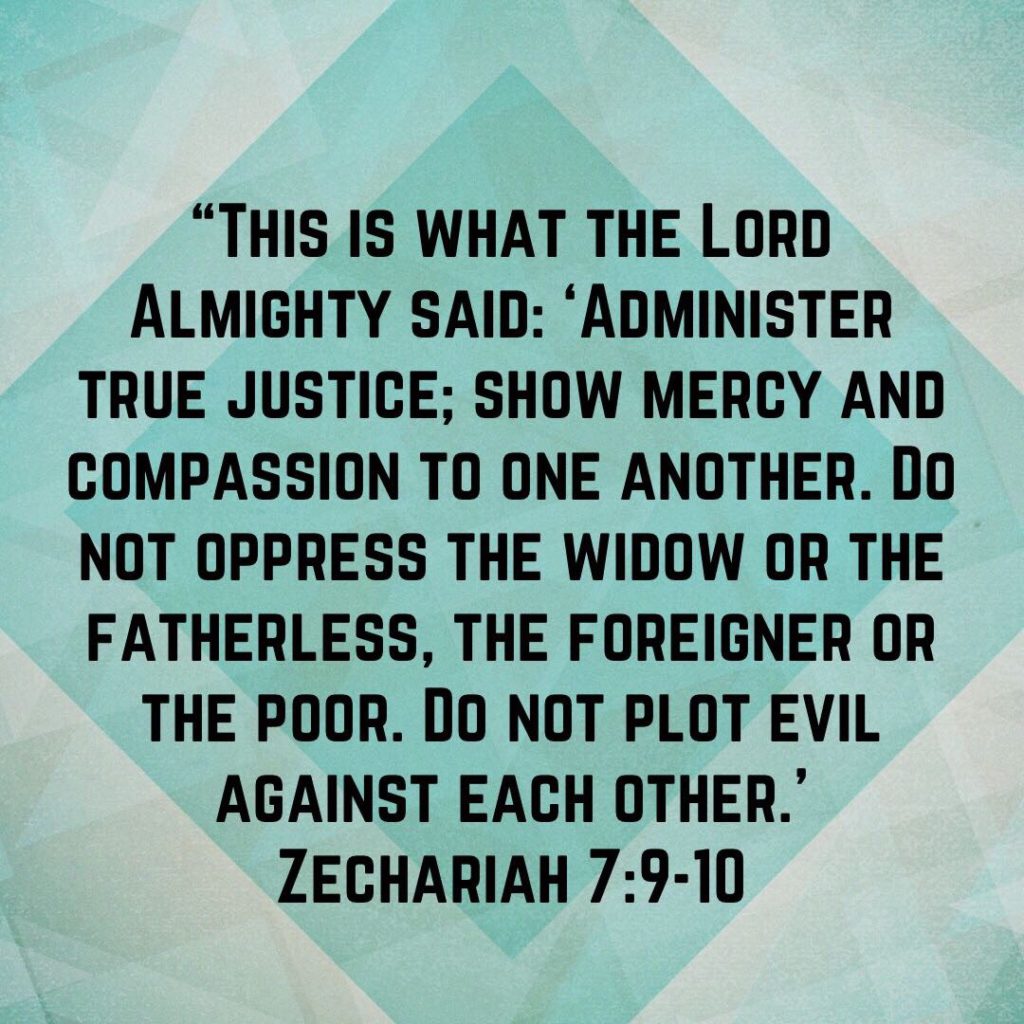
I’ve studied these topics thoroughly and it was a little shocking to see all the references laid out in a chart. It was so reassuring to me. Even though it seems overwhelming and dark- God’s light is there. He’s taken up the cause of the oppressed already! It’s not a hopeless cause!
Jesus shared so much on how much He valued community and relationships! But he also flipped so many cultural norms. He championed the cause of sinners, outcasts, groups and races of people that were looked down on and not automatically part of a societal group. He didn’t put a lot of stock in biology either- we are all children of God. He regularly broke gender and racial barriers in brave a thoughtful ways throughout the New Testament. He championed the causes of those that society and the righteous of the time overlooked or looked down on. In parables and stories Jesus reached out to males and females, and the vulnerable, in significant ways! He addressed women in crowds and made a widow the main figure in a story. He’s for everyone!(Kenneth Bailey, Jesus Through Middle Eastern Eyes)
What amazed me while I was outlining this throughout the week- ALL OF THIS IS STILL SO RELEVANT!! Almost everything that was true of the vulnerable people in society biblically is true now. And how true in our current evangelical climate!? We’re rapidly loosing ground and influence in our culture because of how we are treating each other and what we are not doing to care for those that need it. Youth are leaving the church family in drovvves. And we still need to be told to not just remember the vulnerable but to ACT ON IT! Derek and Dianne Tidball put it this way- “Paul’s command challenges us (as the contemporary church) not only to look after widows (orphans, foreigners) or ‘our own’, but others who are vulnerable and unsupported in our society (by both the church at large and the government) [The Message of Women, Tidball, Pg.280]
It seems like an overwhelming task, loving our small and global communities well. Relationships and community are so sticky. Sometimes it’s the awesome chocolate fudge kind of sticky and sometimes it’s the type of obnoxious sticky that even goo gone can’t help. And if we don’t form and keep healthy boundaries, relationships can be overwhelming. I like how Lysa TerKeurst puts it in her book ‘Uninvited’, “People don’t mind doing CPR on a crisis victim, but no one person is equipped to be your constant lifeline.” (pg.45, Uninvited) If our lifeline is not solely the love of Jesus, then we can’t be in healthy communities freely loving on and being blessed by others. But relationships are worth it. Engaging, head on, with the vulnerable is worth it. Redemptive, resurrection work is hard. It requires uncomfortable changes in our homes and churches. When we dove into adoption, we thought we knew pretty well what we were getting into. But we had no idea how it would drastically alter our lives and perspective on theology, family and global responsibility.
Really, it all comes down to investing in people! And on our adoption journey- the BEST advice I received was to take everyone’s advice and offhand comments with a grain of salt. And only to seriously consider the parenting advice of those who said “This is what worked for us.” So with that in mind- here’s how we have been loved on by our immediate community and how we’ve been learning to love our immediate and global community better. (a gargantuan seeming task for these introverts!)
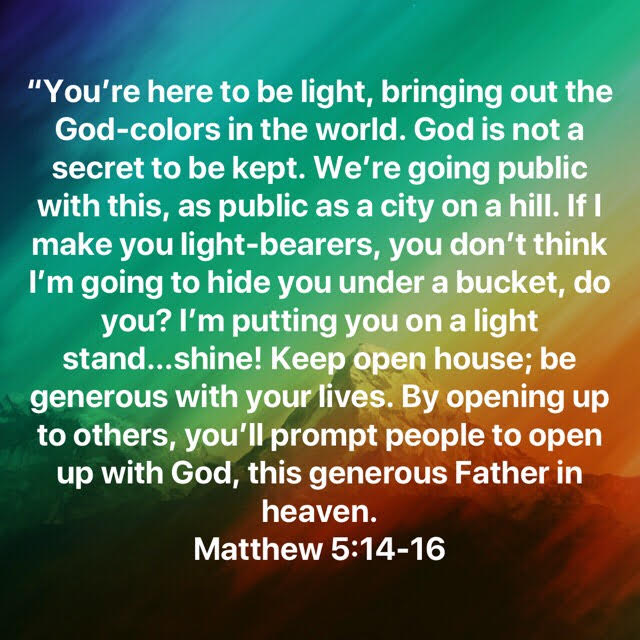
~What We Can Do~
- Switching up how we view Rejections and Invitation: Everyone wants to be seen, heard and included- right? And we naturally want the same thing for our kids.
- We live in this time when people don’t think about things for very long- we have short attention spans. We see an invitation to something but then right below it is a video of a dancing cat and suddenly we’ve forgotten about that invitation. It was SO frustrating when we were fundraising for and celebrating our adoption when people would say in person “We’re excited about or going to participate in this” and then wouldn’t. Now part of that’s my fault for not talking about it more or sending more notifications- but it’s also just typical of the times. So I am trying to be much more intentional about accepting or declining things right when I see them- or making a note about them. It only takes two seconds of my time but it’s significant for the person on the other end.
- We tend to ascribe rejection and anger to people falsely. “My neighbor obviously hates me because she rolled her eyes in my direction when we were both walking outside the other day.” When it’s totally plausible that she might just have been rolling her eyes at the weather, or how late she was, and she might not have been thinking about you at all. I’m trying to do better at assuming the best and not just thinking that people are trying to intentionally leave me out. And for that matter- I’m trying to extend more invitations myself. And when we do get legitimately rejected? It sucks- but it opens the door to adding someone different into our community.
- In Brandon Hatmakers book ‘A Mile Wide’ he mentions that sometimes we feel isolated because we haven’t been intentionally pouring into our important relationships. We have to remember that sometimes it’s important to say no to some things so that we can say yes to attention and time with people- even when we don’t always feel like it. So KEEP ON IT!!! If that family with a kiddo that has special needs keeps saying no to things- it means they have a lot more to consider when going out- NOT that they don’t want to be invited. When your friend says no a couple times in a row to going out- ask WHY and then keep inviting them! Stop worrying about rejection and try again- because we all crave connection and invitation.
- Don’t be lazy in your small talk or church talk: We’ve gotten so lazy in our smalltalk- I’m SO bad at this. But it drove me CRAZY when we were in the vulnerable middle of our adoption.
- We have these cliché phrases, out of context verses and quick phrases that we say in passing that can be really hurtful and unhelpful. I try to stop and think WHY am I asking this question before I ask it now. Which is hard for me- my brain tends to freeze up in small talk situations. But it’s important. I try to compliment before question now. When I am intentional with my conversation- especially my small talk- I always feel better than when I am flippant about it.
- And let’s be persistent in prayer for one another. Instead of saying “I’ll pray for you” in passing- really do it. Text someone after you’ve prayed for them. Tell them specifically what you are praying for them. Pray for them on the spot even. Saying “I’ll pray for you” can sometimes feel like a brush off. And it should be something that is taken seriously and done lovingly.
- Look right outside your circle: Who is not a part of your regular thought process that you interact with regularly that could use some encouragement? The single mom on your kids soccer team might love the night off if you could help pick up their kids on the way to practice. The ten extra minutes for you might be invaluable to them. It might make the baristas day if you mention their name- and who knows, you may marry them one day like my sister did 😉 . There are lots of little ways that we can be mindful of the people who are right outside our typical circle. It’s not always convenient, it won’t always be fun but it’s worth it.
- Assess yourself :
- Do you celebrate your friend’s successes? What do you contribute to the friendship? Are you intentional about reaching out to people? Again- these are hard for me as an introvert!! But a little self reflection is good for the soul. Lysa TurKeurst has a great little worksheet on this if you want some help.
- Speaking of worksheets. Do you find yourself saying “Let me know if there’s anything I can do to help” a lot? I’ve found that rarely do I ever get a response from that. And when I’ve been in a vulnerable position it generally made me feel more stressed out and not less. Lets be specific with what we are asking. Ask if they need help with groceries, if they need a meal, a ride, a night out, etc… This website has some great resources, like a help list. It’s by a momma who used to be a missionary who has a kiddo with special needs.
- Change your perspective and get educated on the orphan crisis and other vulnerable groups of people:
- The typical picture that pops up in our heads of what a widow or orphan looks like are probably inaccurate. And viewing adoptive families as heroic- or on the opposite side of the spectrum as thieves, is not helpful. Engaging the orphan crisis is tough, but the people that do are not overly special. We just choose to dive in the deep end with the kids and fight for them, because they’re worth it. Our families are worth it. And there are awesome professionals and communities around to help! Check out the Show Hope website or take a few minutes and watch a couple of videos that the Archibald Project has put together.
- We definitely have some serious work to do. There’s a lot of myth and negativity around adoption that needs to be dispelled. And there’s a lot of work for Christians to do, changing home and church environments to include vulnerable families and kiddos- changing the way we talk about them in passing. Kids with special needs, families who are blended, foster kiddos with special emotional needs- the list goes on of people who do not feel like the church is inclusive for them. And I wish I had a more sensitive way to say this, but we need to be as outraged by the situations surrounding abortion as we are about new abortion laws. Matt Chandler wrote “As the church, we must not say of abortion, ‘this is murder.’ Without saying to the pregnant woman, ‘we will serve you.’ If we are doing the former without the latter, we aren’t truly understanding the Gospel (or the real root social issues). We must listen, love, foster, adopt, give money, babysit, donate supplies, mentor young women, and support in what ways God has equipped us.” There’s a tendency to say that we are pro-life and outraged as Christ followers when the reality is that we are absolutely in a position to take care of the entire foster system RIGHT NOW- but- we- do- not! There is a disconnect there friends. We need to educate ourselves about it before shouting about it- please. I’m SO thankful my sweet child’s momma chose life for her- but I wish for her sake that there was a support system for birth moms in church. There is an alarming lack of support for birth parents who have made an adoption plan for their children. We can do better.
- Contemplate what you can do to help globally: There are SOOOO many ways to get involved with our brothers and sisters who are helping the most vulnerable people on the planet. You can sponsor a kiddo- we have loved working with Compassion. And it doesn’t even have to cost anything- join a missionaries prayer team! Write them a note of encouragement! Even educating yourself on global issues can be impactful.
Sometimes it seems overwhelming- but Jesus changed things in small, brave, and thoughtful ways and we can too. Healthy community is worth it. Our fellow Christ followers are worth it. The kiddos without a forever family- they are worth it.
And isn’t it amazing the way God designed us for community?! The relationship with God, the imperfect fellowship with each other is what makes the Gospel real- not just some awesome story to be believed, but one to be lived.
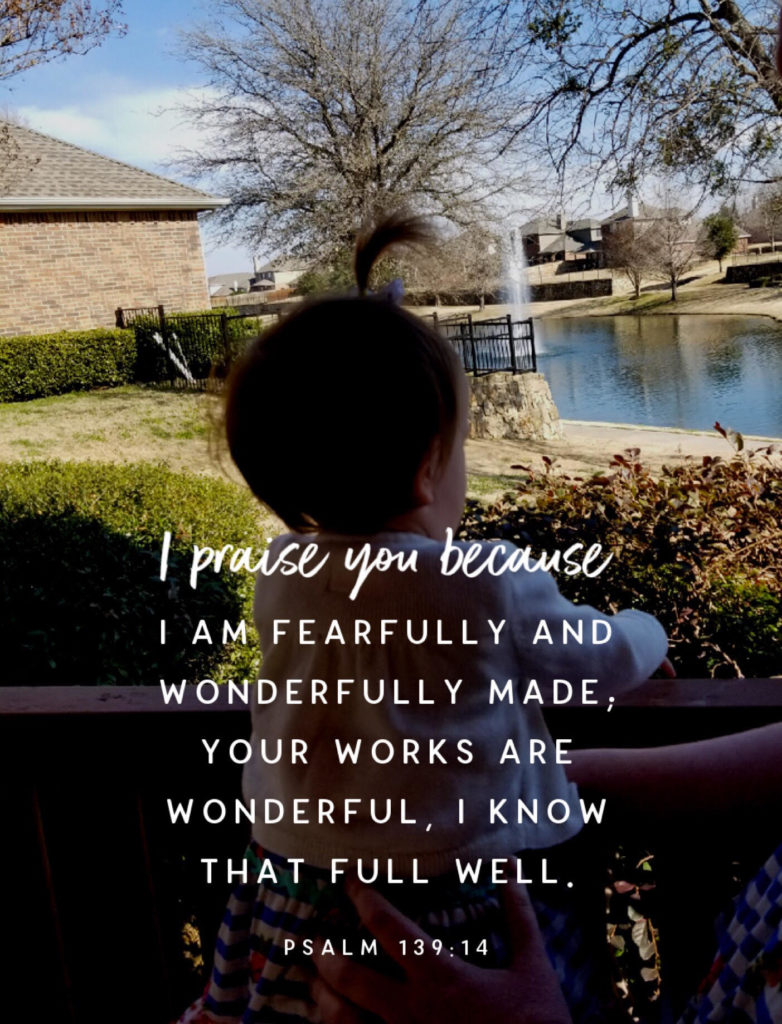
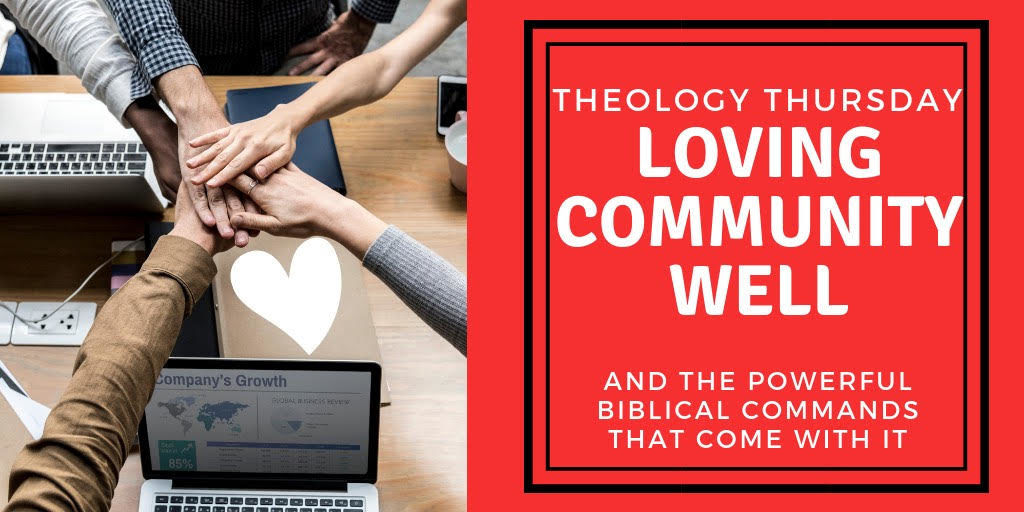
Down The Hobbit Hole Blog uses affiliate links, we only link products we think you’ll like and you are never charged extra for them. As Amazon Associates, we earn from qualifying purchases at no additional cost to you. We also use cookies to gather analytics and present advertisements. This allows us to keep writing discussion questions and telling ridiculous dad jokes. Find our other reviews with discussion questions here. Our posts about faith here. And our posts about family stuff here.
